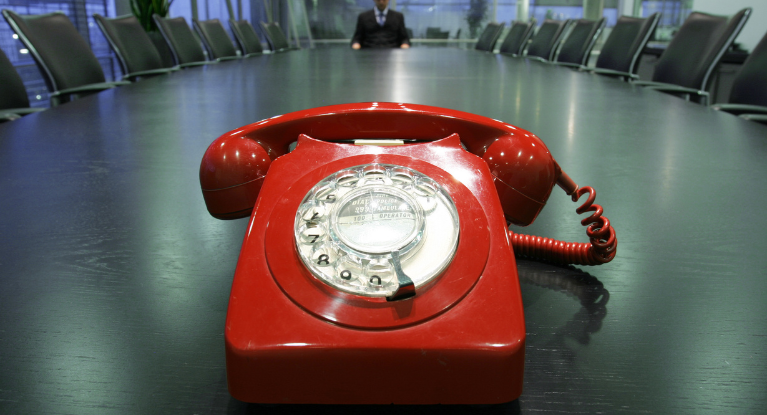Benefits of Four Business Communication Styles for Your Company

4 min read
Unlock Success with Effective Business Communication Styles! Boost productivity and collaboration. Discover the perfect styles for your company today!
Communication plays a significant role in organizations for better teamwork. With this, we not only attain targets but also one can grow and enhance our careers. Communication between coworkers can play an essential role in a successful business.
Go through our blog to learn more about “The Influence of Social Media on Business Communications.”
One can become a game changer with excellent communication and way of the style used to communicate with others to convince others. It is not just the words we deliver to engage others; it includes behavior, body language, and nonverbal nods that follow terms.
To bring out the best communication styles in you, one has to interact with others. Everyone will get a unique communication style; let us explore four significant types and get into the topic.
- Personal Communication Style
- Intuitive Communication Style
- Analytical Communication Style
- Functional Communication Style
Personal Communication Style
The personal communicator employs emotion and connection to comprehend the world around them. They value understanding the motivations and feelings of their coworkers.
To understand what their coworkers think, these folks frequently build personal relationships with them.
Especially when collaborating with someone they know, they can usually read nonverbal cues and other people’s body language.
- Interconnect Their Spirits: These folks will express their feelings clearly and anticipate you will do the same. While others may view this as unprofessional, an emotional connection allows them to communicate more successfully.
- Chooses To Talk To People In Person: They frequently prefer to meet in person because of their communication style’s emotional nature, making it easier for them to understand non-verbal clues and establish a sincere relationship.
- They Are Thought To Be Diplomatic: They are often adept at resolving disputes and enjoy listening. They take special care to ensure that everyone involved in a project or job feels heard as they think about the health of their relationship for which they are worried.
Intuitive Communication Style
Analytical communicators are the exact opposite of intuitive communicators. They prefer using a more informal, all-inclusive style to make their points and value it when others do the same. They value unconventional thinking and place less value on specifics.
To absorb concepts, intuitive communicators prefer a comprehensive overview rather than linearly hearing things.
- Distractions Must Be Avoided: When interacting, they prefer to give a general picture and leave out the finer details because they find them distracting. They could be less patient with talks or chores that require more attention to detail.
- I Prefer Using Pictures: Intuitive communicators frequently use visual examples like charts, graphs, or pictures. It enables them to illustrate the entire concept quickly.
- Develop Innovative Concepts: They can create significant, audacious concepts thanks to their original, unique point of view. They are ideal for creative meetings or brainstorming sessions because of this.
How to Approach Them in Work?
Working with an intuitive communicator requires stepping back from the specifics of a topic and getting to the core of a concept before connecting. They may prefer to avoid detailed instructions and would instead get to the point. To better understand a subject, people frequently favor face-to-face contact.
Analytical Communication Style
It focuses on the information they need, not on their emotions or feelings. A person of this type is very commendable and authoritative. This type of person is highly recommended for businesses. They are often very effective in a business, and these people will hold upper management positions.
Analytical communicators can be seen as confident and ruling as they always being in higher positions and have expertise in that field.
- Are Regarded as Trustworthy and Dependable: They are an excellent option for candid criticism and objective opinions due to their reputation management for making facts-based decisions.
- Put Logic Before Intuition: They frequently cite statistics to support their arguments because they prefer concrete, quantifiable facts. They can approach issues objectively, which might help them make wise decisions.
- It Can Come Across As Frigid: An analytical communicator typically dislikes casual conversation and tries to get to the point. It is rarely intimate and is merely one of the ways they communicate.
How to Approach Them?
Use concrete language, hard statistics, and accurate numbers when speaking to an analytical communicator. Keep emotions and sentiments out of your argument and only give facts. Because they can examine the information offered, they prefer written communication.
Please get to the point quickly when communicating with them rather than circling the subject. The analytical communicator will appreciate it if you stay clear about what you want and avoid using any confusing jargon.
Functional Communication Style
Functional communicators like specifics, steps, timelines, and other well-thought-out strategies. They aim to make sure that all information is included in all communications. Therefore, they organize their ideas logically.
Functional communicators will feel that they need more context and significant pieces of information, unlike the intuitive communicator, who would want to bypass all the details and get to the finish of a talk.
- Requisite Reliable Feedback: Feedback is valued and used to improve over time by functional communicators. They like gaining new insights into themselves and their job by viewing things from many angles.
- Ask Numerous Inquiries: They prefer environments where they are free to ask questions and want to be sure they comprehend every aspect of a plan or project.
- Choose Finished Plans: They favor well-organized, step-by-step methods. Before beginning a project, they want to know their obligations, deadlines, and expectations.
What to Do to Work with Them?
Ensuring they are fully informed upfront is essential when dealing with a functional communicator. Before discussing a project, please provide them with a written timeline or a list of expectations so they have time to consider inquiries. For them to succeed, you must respond to these inquiries.
It’s crucial to build rapport before getting into the specifics of a project when working with a personal communicator. Ask them about specific beliefs or choices and use emotive language.
There Is Never a Better Time to Foster Relationships
Ensuring that your written, nonverbal, and spoken communication is appropriate for the audience is the secret to a healthy workplace. It might be helpful to bring objective evidence if you’re meeting with your employer, who is an analytical thinker. If you send your coworker, a personal communicator, some constructive criticism by email, think about scheduling an in-person meeting instead. The effectiveness and structure of your workplace can be increased by developing your ability to detect various styles and teaching your staff to do the same. Communication is the future of work, success, and organizational growth.
You can go through our article Why Communication Is Important In Business? for more insights.
Published: June 15th, 2023
Subscribe to Our Latest Updates
Get monthly product and feature updates, the latest industry news, and more!





